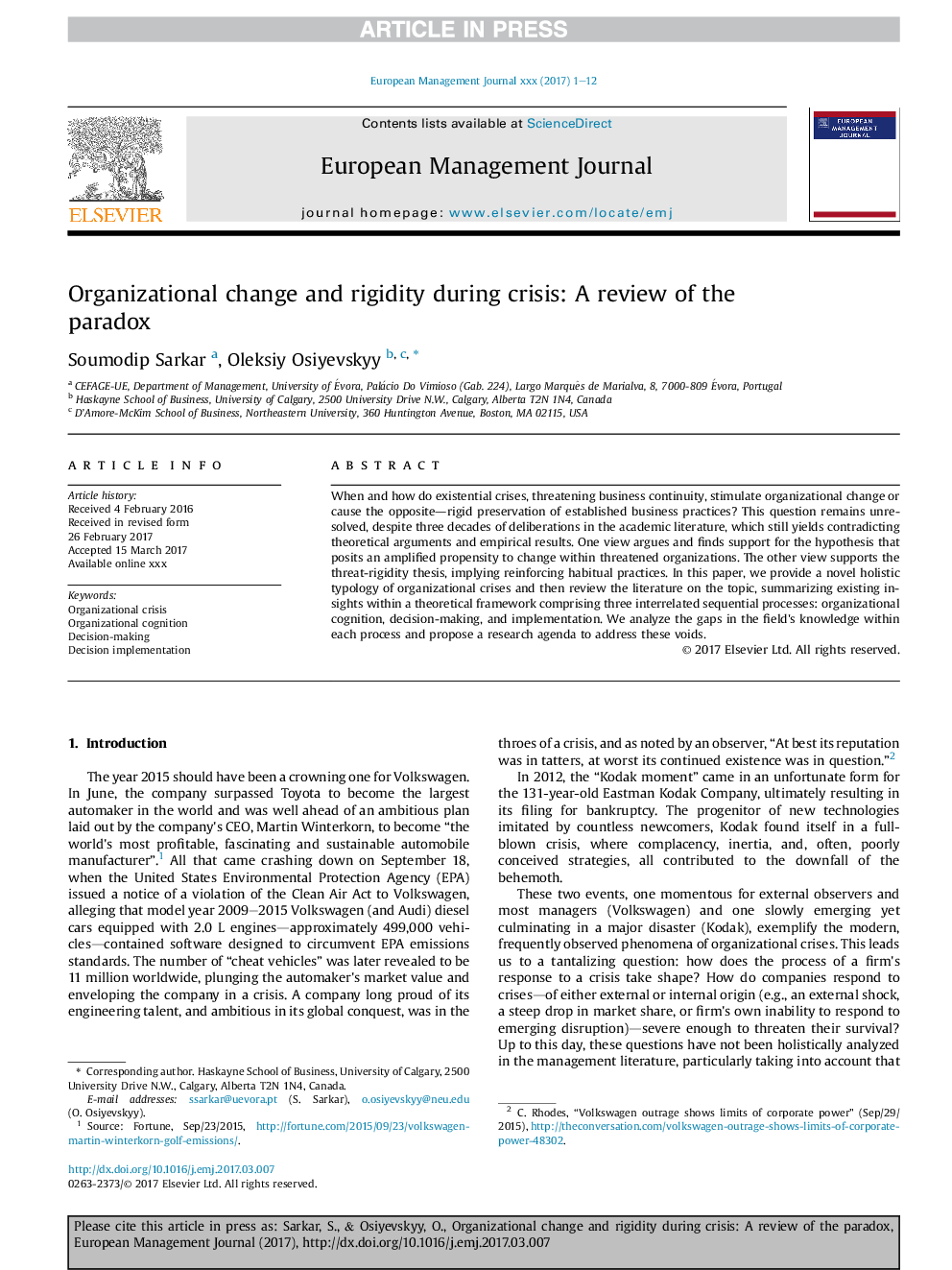| Article ID | Journal | Published Year | Pages | File Type |
|---|---|---|---|---|
| 7423563 | European Management Journal | 2018 | 12 Pages |
Abstract
When and how do existential crises, threatening business continuity, stimulate organizational change or cause the opposite-rigid preservation of established business practices? This question remains unresolved, despite three decades of deliberations in the academic literature, which still yields contradicting theoretical arguments and empirical results. One view argues and finds support for the hypothesis that posits an amplified propensity to change within threatened organizations. The other view supports the threat-rigidity thesis, implying reinforcing habitual practices. In this paper, we provide a novel holistic typology of organizational crises and then review the literature on the topic, summarizing existing insights within a theoretical framework comprising three interrelated sequential processes: organizational cognition, decision-making, and implementation. We analyze the gaps in the field's knowledge within each process and propose a research agenda to address these voids.
Keywords
Related Topics
Social Sciences and Humanities
Business, Management and Accounting
Business and International Management
Authors
Soumodip Sarkar, Oleksiy Osiyevskyy,
